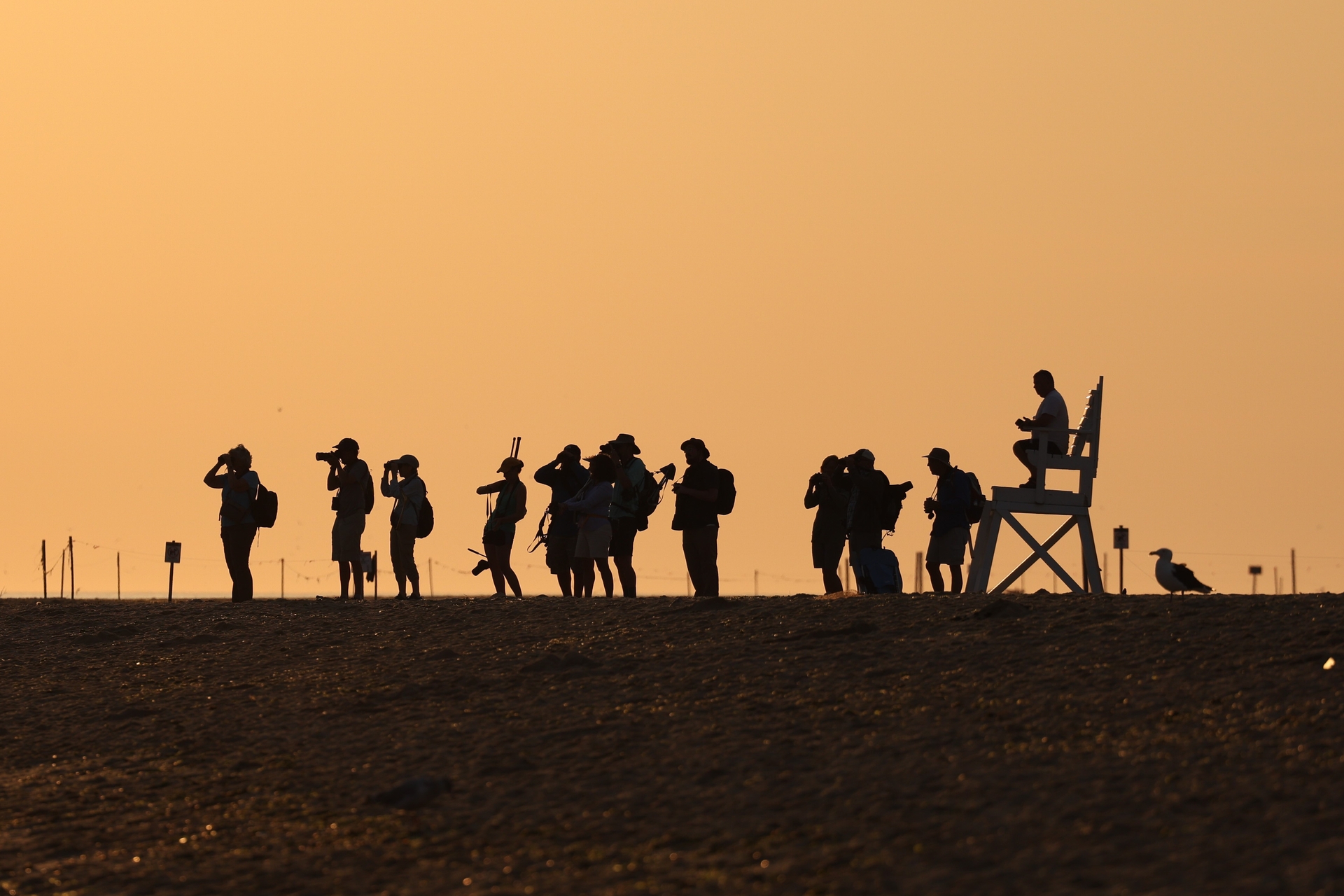We posed a simple question to our Facebook followers: “If you could give one piece of advice to a beginning birder, what would it be?” With over 170 replies, here’s just a sample of what they said.
Patience is Key
“Walk slowly. And when you think you are walking slowly, walk slower.”
“Patience, learn common birds first and their songs or calls. Expand your bird vocabulary slowly. I stress patience, it can take years to become proficient, but it is well worth it.”
“Learn to be quiet and patient in one spot — take the time to watch and listen to what is happening around you.”
Binoculars & Cameras
“Get a good camera and take photos. You will want to capture the experiences and variety of birds for later.”
“Listen, watch and take notes and always have your binoculars and/or camera ready.”
“Get the best pair of binoculars that you can afford. Also, get a field guide and/or a bird ID app.”
Field Guides & Apps
“Get the Merlin app from the Cornell Ornithology Dept. You can id the bird from a photo, sound, or just what you see. There are different packs to download depending on where you are in the world. It is really cool to find and record a bird.”
“Buy a good field guide, learn what birds are in your area, a good field guide will help you learn what to look for (wing bars, bill shape/length etc). Learn from others, bird walks are great.”
“Buy (or borrow from a library) a physical field guide like Sibley. Read the useful introductory materials, but also just page through it. Get a sense of the different groups of birds. Apps are nice and handy but they don’t let you browse and compare like the field guides do — and they don’t tell you anything about useful field marks.”
Browse bird books and guides from the Mass Audubon Shop
Tips & Tricks
“Behavior and location are at least as important as color for identifying a bird, if not more.”
“Find a bird you love and let that be your anchor. For me, it’s Red-tailed Hawks. Spending time watching them has allowed me to learn about other birds, too.”
“Listening is much more important than seeing. Learn a few basic bird calls and you’ll be better off than memorizing pictures of birds you often only hear.”
Teamwork Makes the Dream Work
“Talk to those around you (especially the ones with big scopes and nice cameras). I find the birding community is very friendly and happy to share their knowledge and any pointers.”
“I love birding alone. The solitude and being immersed in nature is healing. However, I think I learn as much in one morning with experienced birders as I do alone in 6 months.”
“For a new birder look everywhere as you walk along the trails, back roads, and even in your own backyard. The birds are not always in the open so keep looking up and down. You will be surprised by what you will see. And also go with a friend so you have multiple eyes to search with. Also Mass Audubon is always there to help with classes walks and to answer questions...as my Father always said look, listen, and enjoy nature!!!”
Learn About the Bigger Picture
“Learn which birds are native and which are introduced invasive species. Learn why some species are now threatened and how you can help by making changes in your yard (native plants and reduce/eliminate pesticides).”
“Plant native plants! Specifically, host plants for moths and butterfly caterpillars. Caterpillars = baby bird food. A study that Doug Tallamy cited is that one clutch of chickadees ate 6,000 caterpillars. If you want birds in your yard, plant native trees, shrubs, and plants.”
“If you plant it, they will come. Consider planting native plants!”
“Don’t use insecticide, weed killer, rodent killer. They’re harmful to predator birds.”
Take an Introductory Program
“Join a bird walk — Mass Audubon often sponsors these as do local bird clubs. In the beginning, you will learn the most being with others that will give you pointers and help you with the basics. Or go with a friend that knows more than you do. Once you know what’s common in your area you can strike out on your own. I started as a child and I studied bird ID cards and field guides for hours and hours. As an adult, though, I think being part of a group would be most helpful.”
“Take Mass Audubon’s Intro Series!”
Don’t Give Up!
“Birding is a lifelong learning process and is filled with delight. Persist! AND behave as if the birds’ lives depend on you, because they do.”
Upcoming Bird Programs
Wednesday Morning Birding
-
Newburyport and vicinity
-
Wednesday, December 31
9:30am-12:30pm
Adults
New Year's Day Birdwatching
-
Ipswich River Wildlife Sanctuary, Topsfield
-
Thursday, January 1
8:00-11:00am
Adults
New Year's Day Birdwatching
-
Joppa Flats Education Center, Newburyport
-
Thursday, January 1
8:00-11:00am
Adults
Stay Connected
Don't miss a beat on all the ways you can get outdoors, celebrate nature, and get involved.



